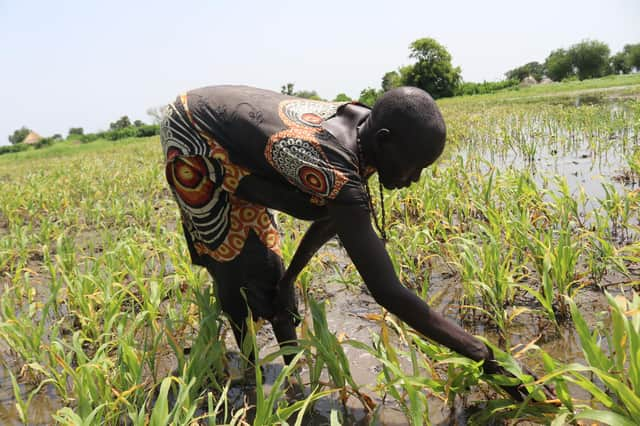Let Scotland lead the way in 2022 - Chris Hegarty


Let’s first celebrate what went well. Scotland rose to the occasion. Glasgow was widely acclaimed by delegates as having been a brilliant host city, tens of thousands of people took to the streets to demand climate justice, and Scotland’s relatively strong positions on climate change were cited by the Secretary General of the UN and others as offering elements of the leadership that is so badly-needed.
Scottish politicians, across the party spectrum, engaged with people from across the Global South who came to Glasgow to voice the urgency of their own countries’ situations. A Christian Aid colleague from Bangladesh called me immediately after having emerged from a meeting with the First Minister – clearly emotional and relieved to finally be heard and taken seriously. If it sounds ridiculous to be thankful simply to be heard on issues of such importance, that’s because it is. But the voices of those best-placed to articulate the worst impacts of climate change are all too often ignored or marginalised, and the willingness of the Scottish Parliament and Government to recognise climate change as an issue of justice, and to hear those voices, is all too rare.
Advertisement
Hide AdAdvertisement
Hide AdHaving acknowledged the positive aspects of 2021, what needs to happen in Scotland in 2022?
While Scotland’s record on cutting emissions is relatively good in international terms, it’s not yet good enough. An ambitious 2030 target of 75 per cent cuts in greenhouse gases (from 1990 levels) has been set, but the UK Committee on Climate Change – an expert group that advises both the Scottish and UK governments – recently warned that to keep this target in sight, ‘major changes are needed across the Scottish economy, requiring lasting, systemic action in most sectors’.
In some sectors, we’ve seen transformation of that magnitude already. The last decade has seen a sea-change in how electricity is generated in this country. An excellent new film from the Royal Scottish Geographical Society, ‘Scotland’s Climate Journey’, charts a direct line between campaigning on the Climate Act of 2009 by supporters of Christian Aid and others in the Stop Climate Chaos Scotland coalition, and the significant subsequent changes that we’ve seen since – including the huge proliferation of wind power that we can see today. Such progress helped Scotland to meet its last major target – 42 per cent cuts by 2020 – six years ahead of schedule.
To meet the 2030 target, changes of similar scale, vision and urgency are now required in other sectors too, and in how we live our lives, how we grow food, travel, keep our homes warm. In 2022, each of us has a role to play in embracing such changes, and giving our politicians encouragement to be bold on these issues.
Scotland must also continue to raise its voice on issues that affect low-income countries in the year to come. The concept of Loss and Damage (in essence, funding for low-income countries most adversely affected by climate change from those with greatest responsibility for causing it) has been a sticking point in climate talks for years. At COP26, Scotland became the first country to pledge funds to address Loss and Damage, a move widely welcomed as a major breakthrough by climate campaigners. This issue will be to the fore throughout 2022 and beyond, and the opportunity for Scotland to play a leading role is significant.
Let’s take these opportunities to lead, and make 2022 a step towards the climate justice that the communities with which Christian Aid works so urgently need.
Chris Hegarty, Senior Adviser, Christian Aid
Comments
Want to join the conversation? Please or to comment on this article.